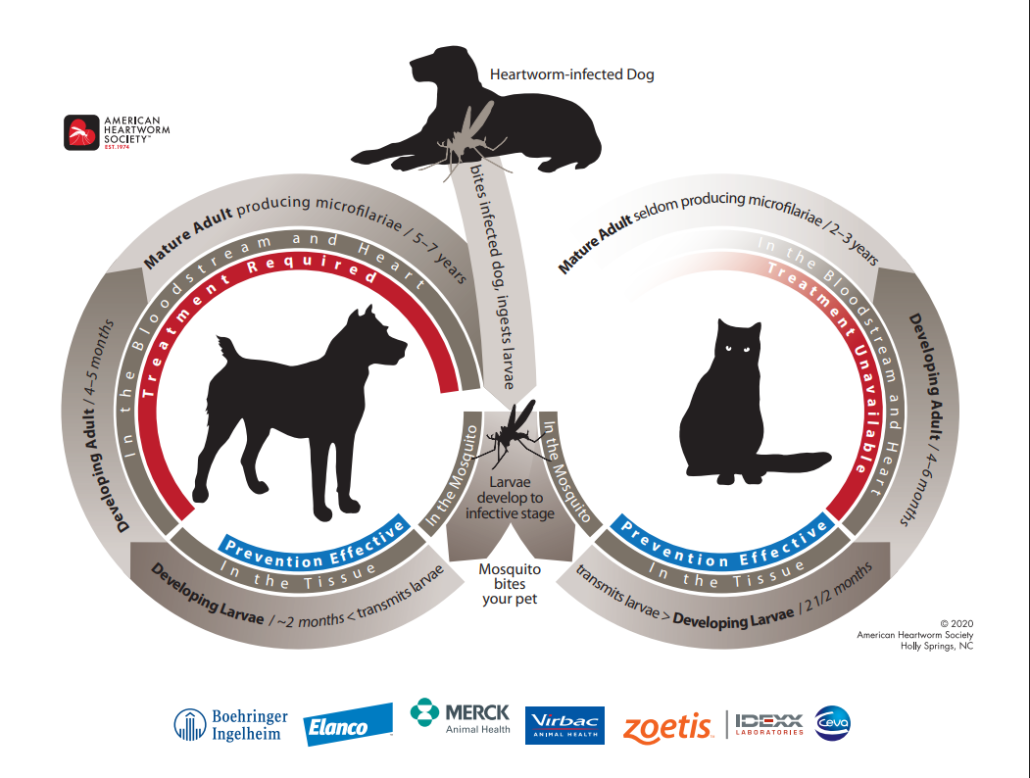April 18, 2025 –
This article is written by Dr. Gail Rapport, NOCO Humane Chief Veterinarian
Heartworm is a parasite that can infect most mammals. The life cycle of the heartworm parasite is complicated with different stages taking place in different hosts. The primary vector for heartworm is the mosquito, The dog is a natural host for heartworms, which means that heartworms that live inside the dog mature into adults, mate and produce offspring. Heartworm disease causes lasting damage to the heart, lungs and arteries, and can affect the dog’s health and quality of life long after the parasites are gone. For this reason prevention is far superior to treatment.
Heartworm disease in cats is very different from heartworm disease in dogs. The cat is an atypical host for heartworms, and most worms in cats do not survive to the adult stage. Cats with adult heartworms typically have just one to three worms, and many cats affected by heartworms have no adult worms. While this means heartworm disease often goes undiagnosed in cats, it’s important to understand that even immature worms cause real damage in the form of a condition known as heartworm associated respiratory disease (HARD). Moreover, the medication used to treat heartworm infections in dogs cannot be used in cats, so prevention is the only means of protecting cats from the effects of heartworm disease.
The life cycle:

It is recommended to have your dog tested yearly to catch any developing infections before too much damage has occurred. In the early stages of the disease there are few if any clinical signs. As the disease progresses the dog may begin to show signs of exercise intolerance, coughing, and may develop full heart failure if left untreated.
Treatment for the disease is a long process taking place over a 9-month span. During much of that time your dog will need to have restricted activity. It is very costly, and carries a significant risk of adverse effects during treatment.
We recommend using a monthly heartworm preventative. Many of these products also contain other medications to treat for additional intestinal parasites like roundworm; hookworm; and in some products also whipworm and/or tapeworm. For this reason, even though the vector that spreads heartworm is the mosquito, which is a seasonal pest, it is still recommended to stay on the prevention year round to avoid other parasite infections. Especially here on the Front Range where we all love our canine companions and the density of dogs is particularly high!
Credit: American Heartworm Society





